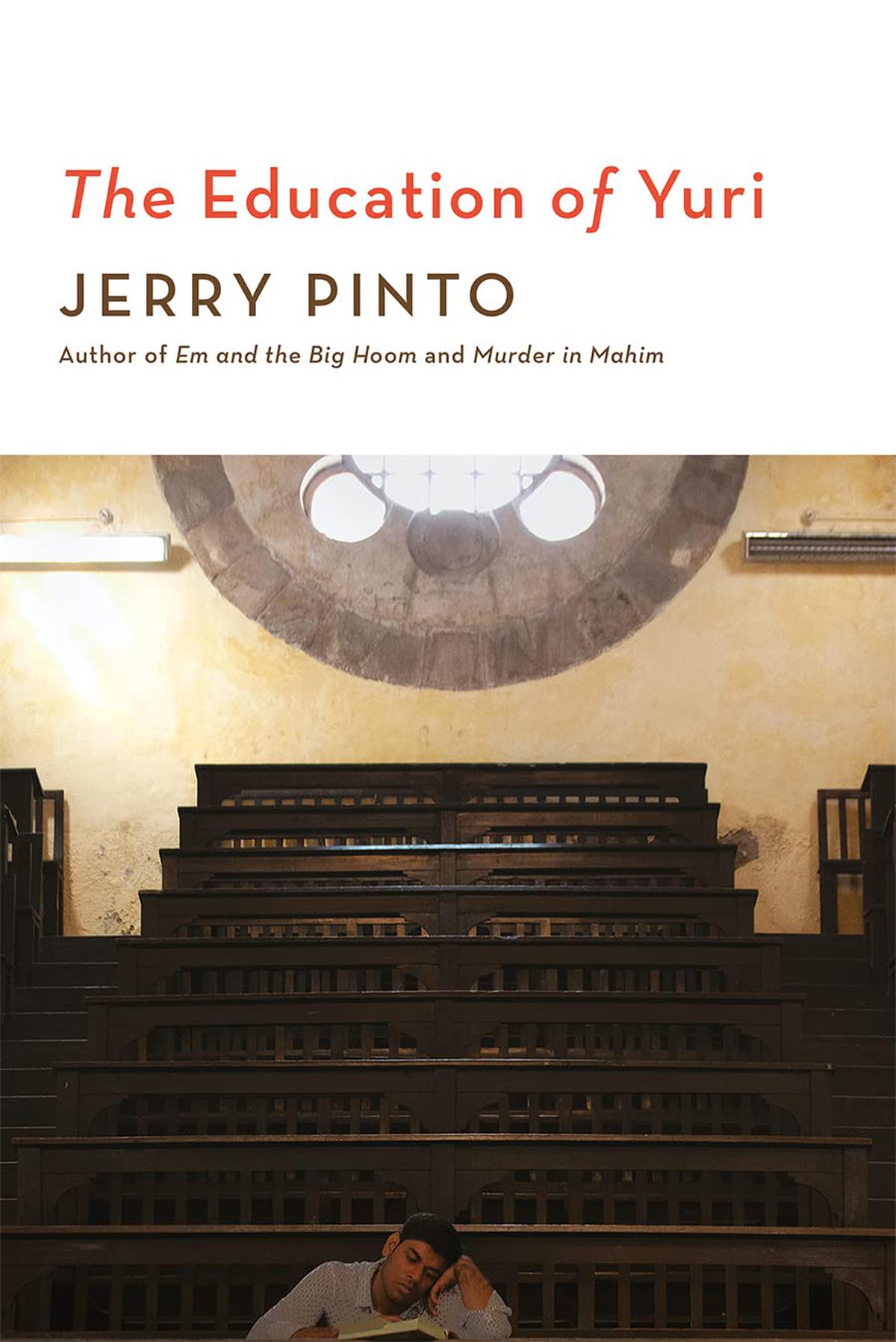At the end, I was bereft. Not because the novel closes tragically, but that it ends at all. How much there is to enjoy about this book, and how much to love about Yuri, the character at the heart of Jerry Pinto’s new novel, The Education of Yuri.
It is bildungsroman at its best, as we follow the trials and tribulations of a precocious 15-year-old, growing up in Bombay of the early 1980s. The great advantage of setting a story such as this in the not-so-very-distant past is that readers — or at least readers of a certain, shall we say, age — are minutely aware of what is to come. The vast sweep of liberalisation, the rise of Hindutva and the right wing, and more recently, the swift chipping away of the heart of socialist secular India. It is difficult not to look back with a certain aching nostalgia.

Contrasting worlds
Yuri, and the coterie of colourful characters around him, aren’t concerned with all this of course. Uppermost in Yuri’s mind as he begins college is whether he will — as he never has — find a friend. And he does. The clever, easy-going, Muzammil Merchant of upmarket Peddar Road. A world away from Mahim, where Yuri lives with his deeply Catholic, deeply kind, insistently khadi-wearing Uncle Julio. These worlds are well contrasted by Pinto — even if sometimes the detail of where Yuri resides grows quite repetitive — and we gain a sharp sense of how Bombay, gigantic and unwieldy, cradles within itself these vast, possibly irrevocable, differences of wealth and class.
The Education of Yuri
Jerry Pinto
Speaking Tiger
₹599
No character is a blank slate, coming from a contextless nowhere. Yet Yuri, orphaned as a baby (his parents are victims of a terrible road accident), emerges at the beginning of the novel with the air of starting afresh, of wiping a mirror clean, as one ripe and ready to be moulded. And so, we follow with eagerness as Yuri journeys back and forth across the city, attends class, awkwardly negotiates new encounters, debates the classic student conundrum of whether to buy food or books (books, always books), and finds a preferred quiet reading corner in the library.
Steadfast narrative
In the way that many ‘growing up’ novels are structured, The Education of Yuri employs steadfast linear storytelling. As readers, we are privy to Yuri’s thoughts, his bits of amateur poetry, his scribbled notebook entries. Who am I, he often asks. What Pinto does, and does so well, is infuse this growing-up tale with heart and much humour — the bit where Yuri confesses to an old priest about certain indiscretions that took place at the back of a shady cinema hall had me giggling out loud — and at no point does the story flag in energy. We are pulled easily along by Pinto’s magical prose, one beautifully constructed sentence after another. See here how a group of Yuri’s friends are “a knot of elegance and easy laughter at the door”, how guilt piles up in a corner of the room “like a pile of wet jute sacks”, “paintings gleam like sacred objects”, and the librarian is “more difficult to spot than the shy mood of Eid”. Pinto’s language is fresh, flexible, surprising.
The “education” of Yuri entails, of course, a learning far greater than what is gained within the classroom — Pinto skilfully guides his protagonist away from a hopeful career in medicine to one in the “Arts” (which, Yuri is delighted to discover, actually entails free periods!), his world expanding through the books he picks up at lending libraries and Premadasa’s bookstore, through the poetry he grapples to write, workshops with Nissem Ezekiel, varied sexual encounters, conversations with friends, movie-watching nights, through friendships gained and lost.
Here is life, for a young man, growing up. Journeying perhaps into becoming a writer. Filled with the contractions of petty anxiety and the expansiveness of a future with promise. We falter a little at the end — the pace quickening in a way that interrupts the reading experience, making it a bit hasty and hurried — but Pinto picks it up again, in a coda that sees Yuri on the cusp of finishing college and stepping out into the world. We wish him well, and as we turn the page, we already miss him.
The reviewer’s new book ‘Everything the Light Touches’ releases this month.


